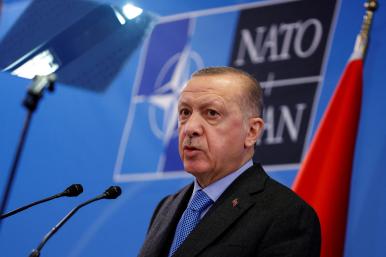
Never miss a breaking event on U.S. policy interests in the Middle East. Customize your subscription to our expert analysis, op-eds, live events, and special reports.
The Diane and Guilford Glazer Foundation Program on Great Power Competition and the Middle East focuses on the region as a setting for heightened competition between the United States and other world powers, such as China and Russia.
Never miss a breaking event on U.S. policy interests in the Middle East. Customize your subscription to our expert analysis, op-eds, live events, and special reports.